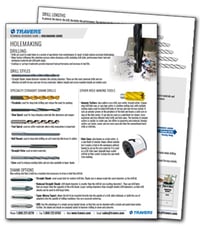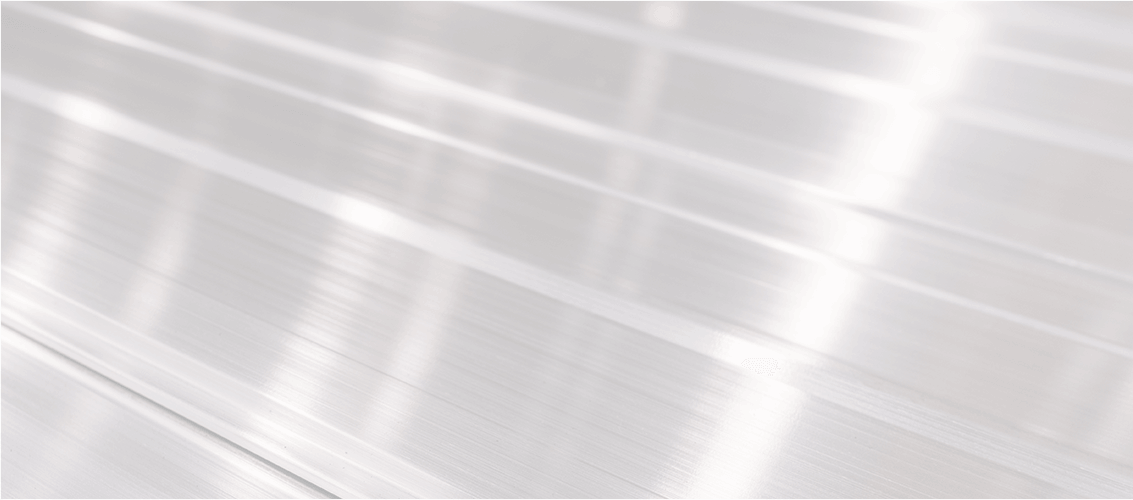Check out our latest video, and learn how to select the right drill bit to use for the job. Take the guesswork out of drilling holes in metal, as Kurt Repsher walks you through our recommendations for drilling hardened or stainless steels, mild or carbon steels, and aluminum. Subscribe to our channel to see more exclusive how to videos and tips from the pros.
Selecting The Right Drill Bit
BEST DRILL BITS FOR Aluminum:
 Recommended drill bits for aluminum:
Recommended drill bits for aluminum:
Rushmore USA's Solid Carbide Jobbers Length Twist Drills
Precision Twist Drill's Bright Finish High Speed Steel Jobbers Length Drills
Aluminum is very easy to machine, but it’s abrasive, so cutting tools will tend to wear quickly. The best drill bits for aluminum are solid carbide because solid carbide is very hard and stays sharp much longer than other materials, providing extended tool life. If you’re only poking a few holes, high speed steel (HSS) is fine. Using a cobalt drill bit isn’t worth the extra cost because on aluminum, its performance level is about the same as that of high speed steel. Skip the coatings on these drills —there’s no need to increase the already high cost. Especially avoid any coating with “Al” in the ingredients (AlTiN, TiAlN, etc.). A drill bit with a bright finish is ideal.
PRO TIP:
Try to avoid the cheapest drill bits, or you could likely end up spending more in the long run. Always use cutting oil or coolant for any drilling operation.
BEST DRILL BITS FOR MilD STEEL (carbon STEELs):
 Recommended drill bits for mild steel or carbon steels:
Recommended drill bits for mild steel or carbon steels:
Viking's M42 135° 8% Cobalt High Speed Steel Jobbers Length Drills
Precision's 135° Split Point Bronze Oxide Cobalt Jobbers Length Drills
TTC Production's TiAlN Coated High Speed Steel Jobbers Length Drills
A good quality High Speed Steel (HSS) drill bit is suitable for use on mild steels, but if you need to get a lot of use from them, go with M35 cobalt drills, or even the aforementioned M42 cobalt drills.
Coatings are helpful when drilling into mild steel, as they:
- Add a higher level of hardness to the tool’s surface.
- Increase lubricity, which helps with the chip evacuation.
- Allow increased feeds & speeds .
BEST DRILL BITS FOR HARDENED STEEL OR STAINLESS STEEL:
 Recommended drill bits for hardened steel or stainless steel:
Recommended drill bits for hardened steel or stainless steel:
Viking's M42 135° 8% Cobalt High Speed Steel Jobbers Length Drills
Precision's 135° Split Point Bronze Oxide Cobalt Jobbers Length Drills
Cobalt drill bits are best suited for use on hard to machine metals, including hardened or stainless steel. Cobalt is blended in with High Speed Steel to make the drill bits harder and more wear resistant. As each cobalt drill bit consists of High Speed Steel with a small percentage of cobalt, the higher the percentage of cobalt, the more heat-resistant and durable the drill bit is.
- High speed steel cobalt drill bits: contain 5%–8% cobalt
- M35 steel cobalt drill bits: contain 5% cobalt
- M42 steel cobalt drill bits: contain an 8% cobalt blend, allowing you to drill at higher speeds than M35 cobalt drill bits
When drilling hardened or stainless steel, select a drill point of at least 135° or higher. This spreads the workload out over a larger cutting surface. Since hardened steel and stainless steel are both quite difficult to drill into, using a drill press or a milling machine should provide the best results.
PRO TIP:
Stainless steel can actually ‘work harden’ as it heats up—so keep your cool, take your time, and make sure the tool and work area stay well lubricated.
Need additional assistance selecting the right drill bit for your workpiece material or application? Contact our tech team!
Want to learn more?
We believe the Right Tool Is Everything™, and we strive to share our experience and expertise in an effort to ensure you select the right tool for your application, follow best practices, and can push your productivity further.
 Download our Holemaking Guide by clicking below. By downloading, you'll learn about:
Download our Holemaking Guide by clicking below. By downloading, you'll learn about:
- Drill style, length and shank options and when to use them
- Choosing the right drill for your material with our drill selection chart
- Drill performance levels
- The benefits of coolant-fed drills
- Reamer types & when to use them
- Speed & feed recommendations for reamers
- Troubleshooting counterboring applications, and more!



